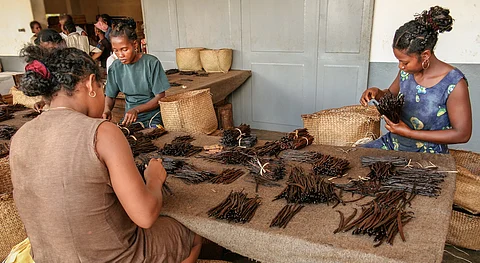

Consumption of products by developed countries was responsible for biodiversity loss in other countries, a new study published in Nature on February 12, 2025, has shown.
The study, by Princeton University researchers, looked at how countries cause biodiversity loss outside their own borders through their demand for agricultural and forestry products grown in other countries. An instance being import of food or timber from other countries, leading those other countries to destroy their forests to produce the exports.
The study quantified for the first time the degree to which countries contributed to global biodiversity loss by shifting the environmental costs of their consumption abroad.
Consumption by high income nations drove biodiversity loss in other countries, being responsible for 13.3 per cent of all species range loss across the globe, the study found.
The countries caused international biodiversity losses 15 times greater than their domestic impacts with the US, Germany, Japan and China being the top contributors. Interestingly, 18 of the 24 countries studied had higher international than domestic impacts on biodiversity loss.
Countries tend to have the largest impact on species in the tropical regions closest to them. For instance, US consumption had the most significant impact on wildlife in Central America, while China and Japan’s demand affected species in the rainforest regions of southeast Asia.
Nations also drove biodiversity loss in more distant parts of the world through the trade of specific commodities. “Almost half of all range losses at long distances from 24 driver countries were of species in Madagascar,” the study said. These losses were distributed throughout Madagascar and may be driven by deforestation for vanilla production.
The results also highlighted the highly dangerous impacts of international trade on endangered species. Around 25 per cent of critically endangered species had over half of their range loss caused by international consumption.
David S Wilcove, co-author of the study said that by “increasingly outsourcing their land use, countries have the ability to affect species around the world, even more than within their own borders. This represents a major shift in how new threats to wildlife emerge”.
Researchers quantified the global range losses to forest vertebrates from 2001 to 2015 caused by deforestation attributable to 24 developed countries by means of their consumption of products obtained through global supply chains.
The study showed that these driver countries are responsible for much greater cumulative range loss to species outside their own borders than within them.
The international impacts were concentrated geographically, which allowed the researchers to map global hotspots of outsourced losses of biodiversity. Countries had the greatest external impacts on species occurring in nearby regions. However, in a few cases, developed countries also inflicted disproportionate harm on vertebrates in distant countries.